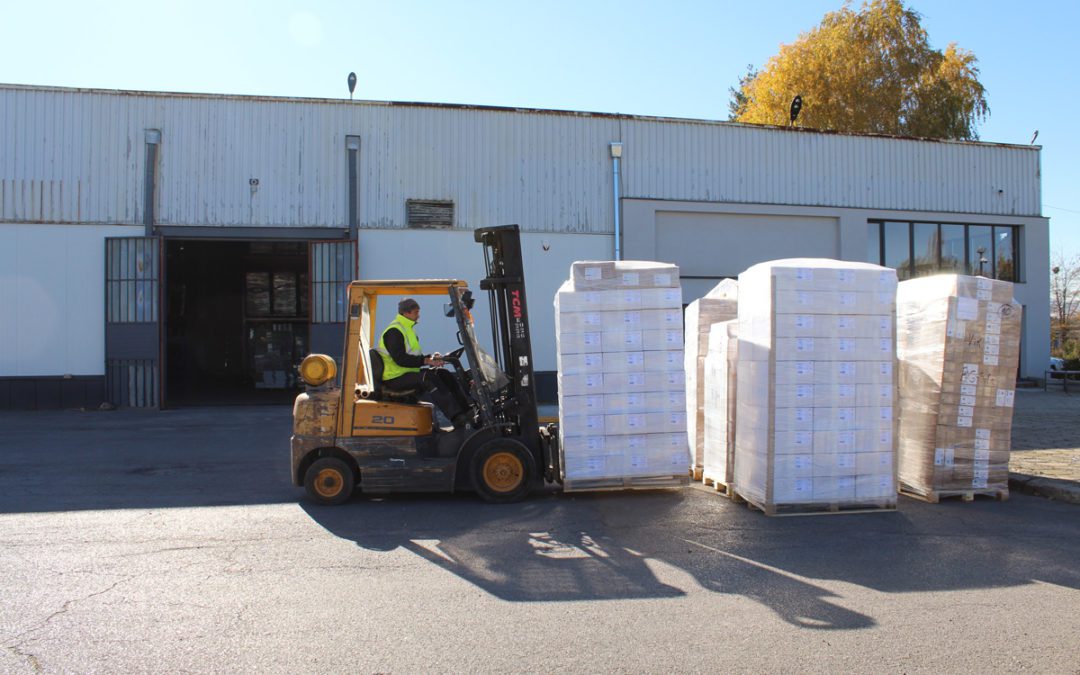The term 3PL/4PL service is often used to denote a form of logistics outsourcing. The decision to move to this concept of work may be dictated by various reasons such as:
- Lack of human and technical resources and other capabilities of enterprises to carry out their logistics activities independently;
- Lack of suitable partners to take on this responsibility in the long run;
- Economic considerations of management that aim to reduce costs, energy, etc.
Working with a 3PL/4PL provider can help you focus on your core business, reduce logistics costs due to more efficient supply chain processes, reach new customers, and more.
Depending on the size and goals of your business, 3PL/4PL services may be right for you. That’s why here we offer you more information about the differences between the two concepts, their benefits, and how to find a long-term solution for your supplies.
What is 3PL (third-party logistics)?
In recent years, logistics processes have become increasingly complex. Before developing the 3PL concept (so-called contract logistics), for a long time, businesses operated on the principle of 1PL (companies transport goods themselves) or 2PL (manufacturer – carrier), and today the management of the supply chain has already reached 3PL, 4PL, 5PL, etc.
In 3PL services, the manufacturer oversees the supply chain itself but outsources the transport and logistics operations to a 3PL provider (e.g., a shipping or forwarding company). These providers focus on forwarding, warehousing, inventory management, customs brokerage, assembly and packaging, cross-docking, IT solutions, etc. They usually have an extensive partner network, whose material-technical base allows them to be flexible in their customers’ solutions. Here is how they can save you extra costs and provide you with the fastest possible service. In addition, with 3PL providers, you do not need to invest in storage space and technology, own transport, and additional staff.
What is 4PL (fourth-party logistics)?
4PL is a concept in which manufacturers outsource both the organization and the management of their supply chain. It allows them to fully transfer their logistics processes to good professionals, thus achieving more efficient management. 4PL services include logistics, transportation cost analysis, productivity analysis, successful management and coordination of 3PL suppliers, business planning, inventory management, and more.
4PL providers not only accomplish many of 3PL’s services but are also more responsible for their customers’ long-term goals. They facilitate the work process by taking over delivery, distribution, and warehousing so clients can focus on other aspects of their business, such as marketing, advertising, sales, etc.
4PL services allow more flexible operations management, as delivery, distribution, warehousing, physical sites, and information flow are managed by the provider.
Similarities and differences
The main difference between 3PL and 4PL providers is accountability and control, range, flexibility, and capabilities. 4PL handles the entire supply chain, while 3PL focuses on logistics only. They operate at the level of optimization and integration, while 3PL’s focus more on day-to-day operations. As noted, 4PL companies can effectively coordinate the activities of 3PL providers as well.
3PL providers do not commit to managing and organizing the entire supply chain, and 4PL providers perform the function of trusted advisors. Client often relies heavily on their consulting services to grow and achieve their business goals. Therefore, 3PL suppliers may own trucks and warehouses, while 4PL suppliers usually do not own these assets.
Which option is right for you?
Although theoretically, the difference between the two concepts seems elementary, in practice, it is not easy to feel, as each service appears in response to the specific challenges faced by the client. Which concept of work will be most suitable for you depends on many factors. First of all, choosing the most appropriate solution depends on your business needs. The 1PL model only works for huge companies because an enormous capacity is needed to cover the maintenance and operation costs of the material-technical base. The services of 4PL’s, in turn, can limit costs in this direction, but only if revenues cover “outsourced” logistics services. In this sense, 4PL services would be more efficient for medium to large businesses, while 3PL suppliers are more suitable for small and medium-sized enterprises.
If you have a start-up or small to medium business, 3PL services will be the better option for you. They will help you manage your warehousing and distribution so you can focus on marketing and sales as your business grows. However, if you need a more comprehensive range of services for your medium to large organization, the 4PL provider will be more suitable for you.
Тhe choice also depends on where you want to spend your time. Some business owners feel most comfortable when involved in supply chain decisions, and others want to “outsource” as many logistics operations as possible. If you’re like most business owners, you’re in the middle – you want to make sure your deliveries go smoothly, but you don’t have time to supervise every aspect. That’s why you need a trusted partner who will provide a suitable level of service.
Depending on the needs of our clients in Cargo Center Ltd. we can offer 3PL or 4PL services. Contact us by phone at +359 2 956 9455 or email at moc.r1771566968etnec1771566968ograc1771566968@ecif1771566968fo1771566968.

